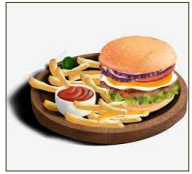Questões de Concurso
Comentadas sobre verbos | verbs em inglês
Foram encontradas 1.428 questões

Observe a análise linguística abaixo e responda ao que se pede.
I. Em “Salad dressing, something we never used before, is also popular now. ”, o termo dressing, na expressão sublinhada, é um substantivo e significa, em português, molho.
II. No trecho “I fear our traditional way of doing things will soon be forgotten.”, o termo sublinhado é uma expressão idiomática que corresponde a “Eu confio”.
III. No 1º parágrafo, as palavras affected, restaurants, traditional e ingredients são palavras cognatas, mas popular é falsa cognata.
IV. No trecho “Traditionally Koreans don’t use individual plates for eating main dishes.”, as palavras plates e dishes são substantivos e têm significados semelhantes.
V. Em “Before, we had never rewarded good service with money”, foi empregado o past perfect, e o verbo destacado significa recompensar.
Estão CORRETAS apenas
Peter is Fay's best friend. He smokes a lot.
What should Peter do?
He should ...
Choose the verb that completes the sentence above correctly:
“Fay, what are you going to do on your next vacation?
I'm going ...”
The verb that completes Fay's answer correctly is:
Choose the verb that completes the following sentence correctly:
Fay was studying English last night when suddenly the lights ...
Choose the verb form that completes the sentence below correctly:
Fay was late for school yesterday.
When she arrived at school, the final test ...
Choose the correct question for the following answer:
She has been studying in a British school for five years.
In the negative:
The past simple is correct in the sentence:
On the basis of this definition, it is correct to say that the words “almost” (last sentence of the second paragraph), “favor” (third sentence of the fourth paragraph), “which” (first sentence of the last paragraph) and “between” (third sentence of the last paragraph), which were taken from text 4A1-II, are, respectively,
I.The word "deserves" (7º§) could be translated as "merece".
II.The word "degree" (7º§) is a verb.
III.The word "raiding" (7º§) could be replaced by "framing".
Which one(s) is(are) correct?
Which verb tense the sentence above is?
I.The word "trinkets" could be translated as "bugigangas" (6º§).
II."Rule off" is a phrasal verb (4º§).
III."Belt loops" could be replaced by "Strap tied" (5º§).
Which one(s) is(are) CORRECT?
( ) The underlined word in “… it helps to know more about hot air balloons themselves.“ is a relative pronoun.
( ) The preposition in the following sentence “…keeping the balloon floating above the ground.” means that the balloon is floating over the ground.
( ) The words ‘actually’, ‘push’, and ‘major’ mean in Portuguese: ‘atualmente’, puxar’ and ‘maior’.
( ) The negative form of “A hot air balloon has three major parts: the basket, the burner, and the envelope.” is “A hot balloon doesn’t have three major parts: the basket, the burner, and the envelope.”
( ) The tense used in the question “Have you ever wondered what keeps a hot air balloon flying?”, is an example of Past Perfect.
Choose the alternative which presents the correct sequence, from top to bottom.
“I met Mary and some Other friends for lunch and gave her the earrings. Mary thought They were great. Mary’s brother, John, take a lot of photographs. He has a car and he drove us to the beach. We built a big castle with sand from the beach, and we swam in the ocean. Fantastic!”